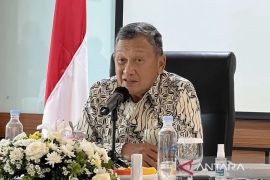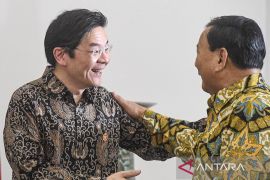The newly-elected Liberal Democratic Party`s national defence task force has decided to boost the defence budget request by more than 100 billion yen ($1.15 billion) in response to an emboldened Beijing, a party official told AFP.
The relatively small amount is likely symbolic, but it reflects anxiety over what Japan sees as an increasingly hostile region, where China is seen as throwing its weight around.
"We have decided that the additional budget will be used for research into a new radar system as well as fuel and other maintenance costs for early-warning aircraft," the official said.
The news came as the foreign ministry called in China`s ambassador to protest over the latest dispatch of official vessels into waters around the Tokyo-controlled Senkaku islands, which Beijing claims as the Diaoyus.
The summoning was the first under nationalistic Prime Minister Shinzo Abe, and reflects the tough line he pushed on China on the campaign trail in December.
It also comes amid disquiet over unpredictable Pyongyang, which sent a rocket over Japan`s southern islands last month in what it insisted was a satellite launch, but Tokyo and its allies said was a ballistic missile test.
Japan`s military is bound by the country`s US-imposed pacifist constitution, which restricts its ability to project power or to wage aggressive war.
However, commentators say it is a modern, well-funded and well-equipped force.
In the run-up to last month`s election, the LDP pledged to expand the number of personnel in the Self-Defence Forces, as well as boost their equipment and budget.
The proposed increase in funding comes after declines over 10 consecutive years that reflect efforts to cut public spending as Tokyo grapples with its huge public debt.
The initial defence budget for fiscal 2012 that ends in March stood at 4.65 trillion yen. This compares with a budget for fiscal 2002 that peaked at 4.94 trillion yen.
Defence Minister Itsunori Onodera has said Abe`s government will review Japan`s long-term basic defence programme, which was adopted in 2010 under the Democratic Party of Japan. The DPJ was routed at the polls.
The current basic defence programme stipulates "Japan will seek to curb personnel costs and improve efficiency" with plans to trim troop numbers by around 1,000.
Abe has pledged to boost ties with key ally the United States and other democracies in the region including Australia and India as a counterbalance to the rising economic and military power China.
The United States stations some 47,000 troops in the world`s third-largest economy in a legacy from World War II, after which Japan was stripped of its right to maintain a full-fledged military.
A rise in defence spending will likely be welcomed in Washington, which has called for Tokyo to shoulder more of the burden of regional security.
However, any attempt to reinforce Japan`s military has traditionally been eyed with suspicion by countries that fell victim to Tokyo`s wartime rampage, with China and the two Korea`s often vociferous in their criticism.
Domestically, the pacifism policy enjoys widespread support and voters are often suspicious of moves that can be interpreted as re-arming.(*)
Editor: Heru Purwanto
Copyright © ANTARA 2013











